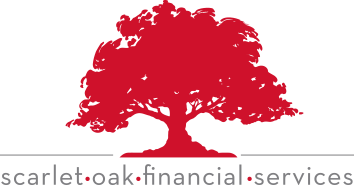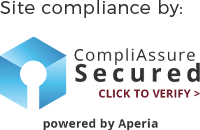Debt Consolidation: A Path to Simplified Repayment
Managing multiple debts can be overwhelming, especially when juggling different interest rates, payment due dates, and lenders. If you’re struggling to keep up with credit card bills, loans, or other financial obligations, debt consolidation might be a solution. By rolling multiple debts into a single loan—often with a lower interest rate—you can simplify your finances, reduce your monthly payments, and create a clearer path toward becoming debt-free.
However, debt consolidation isn’t a one-size-fits-all solution. Understanding how it works, the different consolidation options available, and the potential advantages and drawbacks can help you determine whether it’s the right choice for your financial situation.
What is debt consolidation?
Debt consolidation is when you roll all of your smaller individual loans into one large loan, usually with a longer term and a lower interest rate. This allows you to write one check for a loan payment instead of many, while lowering your total monthly payments.
How do you consolidate your debts?
There are many ways to consolidate your debts. One way is to transfer them to a credit card with a lower interest rate. Most credit card companies allow you to transfer balances by providing them with information, such as the issuing bank, account number, and approximate balance. Or, your credit card company may send you convenience checks that you can use to pay off your old balances. Keep in mind, however, that there is usually a fee for this type of transaction, and the lower rate may last only for a certain period of time (e.g., six months).
Another option is to obtain a home equity loan. Most banks and mortgage companies offer home equity loans. You’ll need to fill out an application and demonstrate to the lender that you’ll be able to make regular monthly payments. Your home will then be appraised to determine the amount of your equity. Typically, you can borrow an amount equal to 80 percent of the value of the equity in your home. Interest rates and terms for home equity loans vary, so you should shop around and compare lenders.
Some lenders offer loans specifically designed for debt consolidation. Again, you’ll need to fill out an application and demonstrate to the lender that you’ll be able to make regular monthly payments. Keep in mind, however, that these loans usually come with higher interest rates than home equity loans and, depending on the amount you borrow, may require collateral on the loan (e.g., your car or bank account).
Advantages of debt consolidation
- The monthly payment on a consolidation loan is usually substantially lower than the combined payments of smaller loans
- Consolidation loans usually offer lower interest rates
- Consolidation makes bill paying easier since you have only one monthly payment, instead of many
Disadvantages of debt consolidation
- If you use a home equity loan to consolidate your debts, the loan is secured by a lien on your home. As a result, the lender can foreclose on your home if you default on the loan.
- If the term of your consolidation loan is longer than the terms of your smaller existing loans, you may end up paying more total interest even if the rate is lower. So you won’t actually be saving any money over time, even though your monthly payments will be less.
- If you use a longer-term loan to consolidate your debts, it will take you longer to pay off your debt.
Should you consolidate your debts?
For debt consolidation to be worthwhile, the monthly payment on your consolidation loan should be less than the sum of the monthly payments on your individual loans. If this isn’t the case, consolidation may not be your best option. Moreover, the interest rate on your consolidation loan should be lower than the average of the interest rates on your individual loans. This allows you not only to save money but also to lower your monthly payment.
Is Debt Consolidation Right for You?
Debt consolidation can be a useful tool for making debt repayment more manageable, but it’s important to evaluate whether it will truly benefit you in the long run. Lower monthly payments and a single loan can provide financial relief, but extending the repayment period could mean paying more in interest over time. Additionally, if you secure your consolidation loan with your home or other assets, defaulting could put your property at risk.
Before consolidating, compare interest rates, loan terms, and total repayment costs to ensure you’re making a smart financial decision. If done correctly, debt consolidation can provide a structured path toward financial stability and debt freedom.
Scarlet Oak Financial Services can be reached at 800.871.1219 or contact us here. Click here to sign up for our weekly newsletter with the latest economic news.
Source:
Broadridge Investor Communication Solutions, Inc. prepared this material for use by Scarlet Oak Financial Services.
Broadridge Investor Communication Solutions, Inc. does not provide investment, tax, legal, or retirement advice or recommendations. The information presented here is not specific to any individual’s personal circumstances. To the extent that this material concerns tax matters, it is not intended or written to be used, and cannot be used, by a taxpayer for the purpose of avoiding penalties that may be imposed by law. Each taxpayer should seek independent advice from a tax professional based on individual circumstances. Scarlet Oak Financial Services provide these materials for general information and educational purposes based upon publicly available information from sources believed to be reliable — we cannot assure the accuracy or completeness of these materials. The information in these materials may change at any time and without notice.



